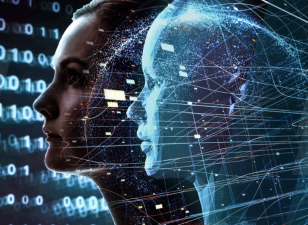Enterprise AI Application Landscape
If we compare an enterprise to a large family, AI is no longer just a robot that sweeps the floor, but an all-around housekeeper who can act as a chef, doctor, tutor, and financial advisor. Let's look at its impressive performance in various "rooms":
R&D Department:
AI has become a "super assistant in the chemistry lab." Previously, when pharmaceutical companies developed new drugs, scientists had to spend countless sleepless nights in the lab trying and failing. Now, AI can simulate molecular structures and predict drug effects, cutting the R&D cycle in half. It's like giving scientists a "super brain intern"—while others are still flipping through literature, it has already compiled a list of candidate solutions.
Production Workshop:
Repairmen Transform from "Firefighters" to "Health Doctors" A car factory installed an AI prediction system on its equipment. Previously, repairs were only done when machines broke down; now, AI can provide early warnings of malfunctions. Once, the system alerted a repairman that a part was "acting strangely," and the repairman found wear and tear, replacing it in time and preventing a production line shutdown. In the workshop foreman's words, "Before, it was about putting out fires; now it's about health checks. AI has taught the equipment to 'speak human language.'"
Marketing Department:
AI Understands Customers' "Minds" Better Than You Do E-commerce platforms are now using AI to analyze user behavior. A clothing brand discovered through AI that customers buying floral dresses often also looked at yoga mats, so they launched a "dress and mat combo," resulting in a 30% increase in sales. A marketing manager laughed and said, "Before, guessing what customers liked relied on experience; now, AI knows their shopping carts better than the customers themselves."
Human Resources:
Screening resumes no longer requires "eagle eyes." HR departments used to strain their eyes looking at resumes, but now AI can automatically extract key information and analyze candidate personality matching. One company used AI to screen sales positions, quantifying dimensions such as communication skills and stress tolerance, increasing recruitment accuracy by 40%. The HR director joked, "Before, it was like finding a needle in a haystack; now, AI helps you catch fish precisely, even knowing what bait the fish like."
Warehousing and Logistics:
Finding goods is like having "navigation." An e-commerce warehouse introduced an AI route optimization system, so pickers no longer have to navigate mazes between shelves. The system calculates the optimal route in real time and can predict replenishment needs. Before a major promotion, AI gave an early warning that a certain laundry detergent was running low on stock, allowing for timely replenishment and preventing stockouts. The warehouse manager said, "Finding goods used to be like a treasure hunt; now, AI is more accurate than Gaode Maps, saving enough time to pack 200 more orders."

